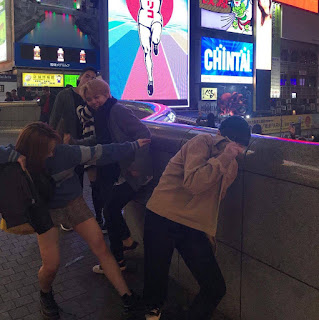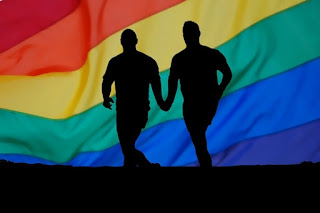Moral licensing: what keeps us from heading to just society
Moral licensing, as introduced in the first episode of the podcast made by
Malcolm Gladwell, is a psychological term describing when a person feels less
guilty of acting immorally after doing one moral act. Some people may think
this ‘moral licensing’ not so seriously, but this is what hinders our society
from moving on to a fair and just society.
Most of us now think that our society has changed a lot, and most of the
minorities' rights are being protected. But the point is: how do they know
that? When people judge whether a society is providing people a fair
opportunity or not, many of them judge by the examples they see in
our society. For example, when a few female presidents began to appear in some
of the countries, people look at them and make a judgement inside their minds
that now women’s rights are protected, and that men and women are equally
treated. But there is a very important point that we are missing: consistency.
When we make a judgement about someone, we don’t judge only by their first impression,
we also think about their personality, characteristics, and many other things
we can know about that person after seeing him/her throughout certain amount of
time.
I believe that this moral licensing is a very important concept in terms
of women’s rights. As I mentioned above, many people think that women’s rights
are being protected enough just because of some women that seem to be in the
places where men used to be at the past. However, we should know that this is a
natural thing, and it was the past that contained a lot of problems. Since
unfair treatment between men and women was so prevalent in our society, it felt
like it was a natural thing. But still, in numerous parts of our society,
things that shouldn’t be perceived natural are being thought as reasonable
things which actually makes sense in our society. Because of moral licensing, I
bet a lot of women are still going through difficulties deriving from misogyny.
Its biggest example is the tragedy that happened in Gangnam station, which
is also called as the Gangnam station number 10 exit tragedy. In Korea,
problems related to misogyny is so prevalent that many people don’t even try to
have a critical mind about those kind of problems, and many people who are
working hard for women’s rights are sometimes even get criticized for trying to
achieve improvement in women’s rights.
I believe that this is a very big problem in our society. If we don’t
realize this problem of moral licensing in terms of women’s rights, many people
will think that our society is fully respecting women’s rights, and will keep
the present situation, ignoring women under the shadow of misogyny. We must try
to notice people that people’s rights still have a long way to go, and when
everyone, not part of them nor at certain time, but every single person at any
time is treated equally not based on any race or gender, they can say that
people’s rights is being respected and that they have a right to keep their
system in a same way.


It's good to read how this concept applies to Korea and feminism, and it's a societal issue that reaches far into roots of culture and upbringing. I think a lot of men are threatened by feminism simply because they, themselves, are already insecure in the competitiveness of society. Is there a way to illustrate inequality without opening the door to keyboard warriors and insults? That's something to think about, and while I support feminism I do think the movement should stay about the levels that many men have tried to drag it down to. Good post.
답글삭제